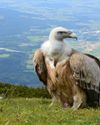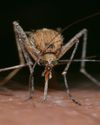The beetroot is the taproot portion of a plant named beet plant. It is not chiefly cultivated in India, it's a crop of Europe but grown at small scale in some areas of India.

When we consider the total sugar production in world , 35% of the sugar is produced from sugar beet and the contribution of India in its production is approximately zero because the climatic condition of India is not favorable for sugar beet, so its basically crop of European countries. Beetroot's medicinal properties are well known. It is rich source of iron and it has great quality of healing. It was first cultivated by the Romans. In19th century it became a famous vegetable because is discovered that sugar can be extacted from it. Now a days America is at top most position in production of beet root then Russia, France, Poland and Germany comes in this chain. In European countries many of the dishes are made up by beet root t, the soup of beet is known as “Borscht”. Beet root is widely use in making menus more attractive. Apart from being delicious and attractive its medicinal value can not be ignored. Because it belongs to the same family as spinach and chard, its leaves and root can be eaten. Beet root leaves have a harsh taste but the round root is sugary taste. Generally beet root has purple color, but also found in white and golden color. It has high sugar percentage, it is pleasant eaten raw but basically it cooked or pickled. Beetroot is of extremely dietary value; particularly the leaves are rich in calcium, iron and vitamins A and vitamin C. Beetroots are rich source of folic acid, iron and fair source of fibre, manganese and potassium. The leaves should not be thrown; they can be cooked as spinach. Beetroots are used for medicinal purposes, mainly for diseases related to liver because they helpful in stimulating the detoxification function of the liver.
هذه القصة مأخوذة من طبعة March-April 2017 من Scientific India.
ابدأ النسخة التجريبية المجانية من Magzter GOLD لمدة 7 أيام للوصول إلى آلاف القصص المتميزة المنسقة وأكثر من 9,000 مجلة وصحيفة.
بالفعل مشترك ? تسجيل الدخول
هذه القصة مأخوذة من طبعة March-April 2017 من Scientific India.
ابدأ النسخة التجريبية المجانية من Magzter GOLD لمدة 7 أيام للوصول إلى آلاف القصص المتميزة المنسقة وأكثر من 9,000 مجلة وصحيفة.
بالفعل مشترك? تسجيل الدخول

Building world's 1st pyramid
In a preprint study published this summer, researchers proposed that ancient Egyptians built the world's first pyramid the 4,700-year-old Step Pyramid of Djoser, which sits on Egypt's Saqqara plateau using a \"modern hydraulic system\" powered by a long-gone branch of the Nile River.

Climate change arms the world, ovarian cancer pulls the trigger.It's time we disarm them both
Climate change, driven by human activities, leads to environmental changes such as rising temperatures, altered weather patterns, and increased pollution.

Climate Change Added 18 mph to Hurricane Wind Speeds over Past 5 Years
High ocean temperatures caused by global warming boosted maximum intensities for most storms between 2019 and 2023, as well as for every 2024 hurricane.

How Indian Vulture Decline Led to 500,000 Deaths in 5 Years
Once a common sight across India, vultures were abundant scavengers, often seen circling landfills in search of carcasses.

Understanding Monkeypox: Insights and Implications
Monkeypox, a viral zoonotic disease, has gained significant attention in recent years due to its re-emergence and sporadic outbreaks globally.

AI predicts that most of the world will see temperatures rise to 3°C much faster than previously expected
Three leading climate scientists have combined insights from 10 global climate models and, with the help of artificial intelligence (AI), conclude that regional warming thresholds are likely to be reached faster than previously estimated.

Infrared Radiation: A New Player In Mosquito Host-Seeking
The sound of mosquitoes is all around us when the sun sets and the air gets warm and sweltering.

Fish Oil May Benefit to Cure Alzheimer's, disorder: new findings
The benefits of fish and fish oil consumption are well-known in medical science as fish is considered a precious food resource that provides sufficient nutrition to humans.

A new class of antivirals could help prevent future pandemics
The arrival of Paxlovid in December 2021 marked another turning point in the COVID-19 pandemic an effective antiviral that has since successfully treated millions.

Turning carbon emissions into methane fuel
Chemists have developed a novel way to capture and convert carbon dioxide into methane, suggesting that future gas emissions could be converted into an alternative fuel using electricity from renewable sources. Carbon dioxide (CO2) is a greenhouse gas that accounts for a large part of Earth's warming climate, and is produced by power plants, factories and various forms of transportation.